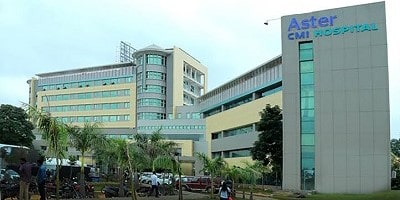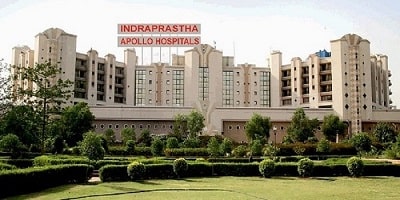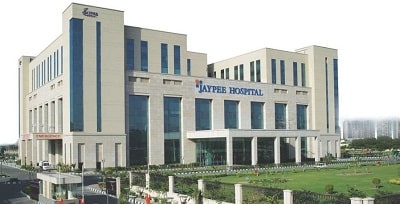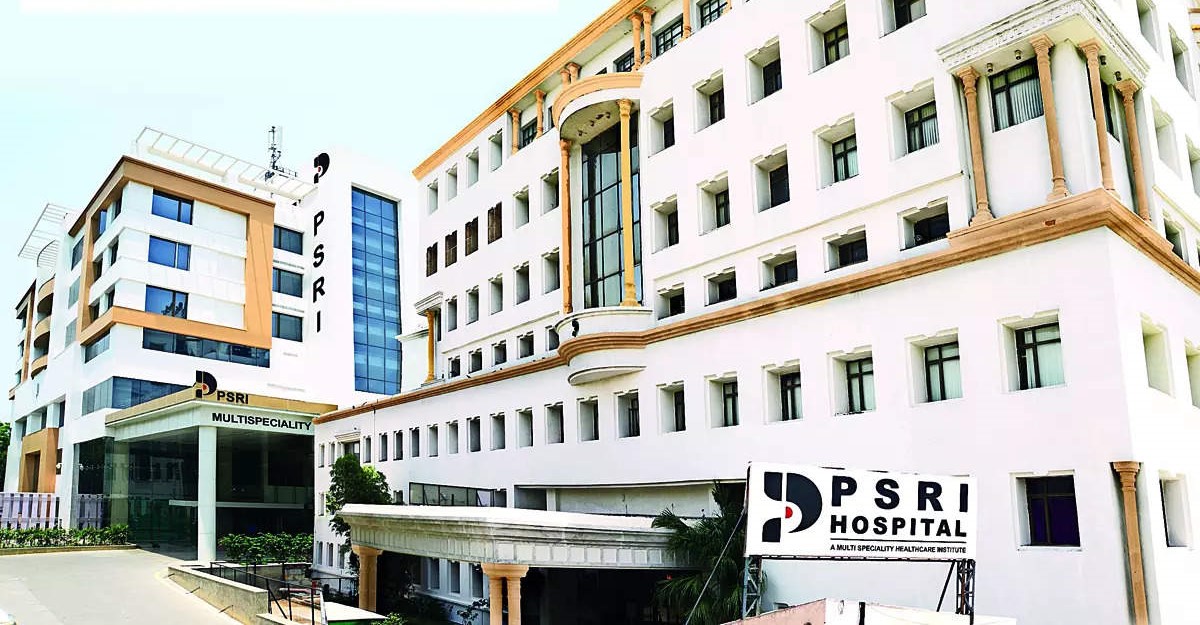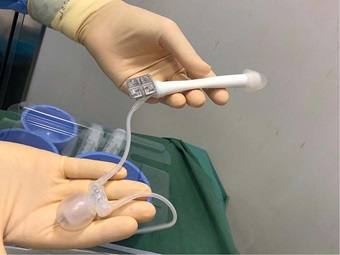
Duration of Treatment
5 days stay in Hospital
Days of Stay
15 days
Anesthesia
Local anesthesia
Cost
6800 to 20000 USD
"Looking for Penile implant surgery cost in India at the best urology hospital at an affordable cost in different cities like Delhi, Mumbai, Chennai, Kolkata, and Bangalore? Here, we answer the question and explain how to choose the top best penile transplant surgeon for better results; our surgeon did more than 6000 transplants successfully.
- Penile Implant Surgery Cost In India : starting from 6800 to 20,000 USD.
- Hotel Cost Near Hospital - starting from 18 to 50 USD (as per hotel services)
- Food Cost - starting from 20 to 30 USD (per day)
- Miscellaneous cost - 20 USD (per day).
Cost of Penile Implant Surgery
Factors Influencing the Cost
- Type of Implant:
- Inflatable implants are generally more expensive than semi-rigid implants.
- Hospital and Surgeon Fees:
- Costs vary based on the hospital and the surgeon’s experience and reputation.
- Geographical Location:
- The cost of surgery can vary significantly based on the location of the hospital.
Average Costs
- In the United States, penile implant surgery can range from $15,000 to $30,000.
- In countries like India, the cost can be significantly lower, ranging from $7,000 to $20,000.
Choosing the Right Surgeon and Hospital
Qualifications and Experience
- Board Certification:
- Ensure the surgeon is board-certified in urology.
- Experience:
- Look for a surgeon with extensive experience in performing penile implant surgeries.
- Patient Reviews and Testimonials:
- Read reviews and testimonials from previous patients to gauge satisfaction and outcomes.
Hospital Facilities
- Accreditation:
- Choose a hospital accredited by recognized medical bodies to ensure high standards of care.
- Technology and Equipment:
- Ensure the hospital is equipped with the latest technology and facilities for penile implant surgery.
- Support Services:
- Look for hospitals that offer comprehensive support services, including preoperative counseling and postoperative care.
Patient Experiences and Testimonials
Real-Life Stories
- Success Stories:
- Many men have shared their positive experiences with penile implant surgery, highlighting improvements in their sexual function and overall quality of life.
- Challenges and Overcoming Them:
- Some patients have faced challenges such as initial pain and the adjustment period but have eventually found the surgery to be life-changing.
- It's an only rough estimate, final treatment will plan after the fresh evaluation reports.
- In India, Penile Implant Surgery Cost In India can vary as per the patient's conditions, urologist experience, Implant quality, hospital facilities, and city.
- To make an appointment, learn more about the kidney stone, read below information, or call / WhatsApp/ Viber - our experts to answer at +91 9582708782. Still, have questions? SUBMIT ENQUIRY
Who is the top best Penile Implant surgeon in India?
- Dr. Anant Kumar (urologist) - Max Hospital
- Dr. Sanjay Gogoi (urologist) - Manipal Hospital
- Dr. Shafiq Ahmed (urologist) - BLK Hospital
- Dr. Gautam Banga (urologist) – ISI Hospital
- Dr. Harsha Jauhari (urologist) - Artemis Hospital
- Dr. Vikram Sharma (urologist) - Fortis Hospital
- Dr. Vijaya Rajakumari (urologist) - Apollo Delhi
- Dr. Vikas Agarwal (urologist) - Aakash Hospital
- Dr. Amit Kumar Devra ( urologist) - Jaypee Hospital
- Dr. Narendra S (urologist) - Global Hospital
Which is the best hospital for Penile Implant hospital in India?
- ARTEMIS HOSPITAL
- MANIPAL HOSPITAL
- BLK HOSPITAL
- FORTIS HOSPITAL
- MEDANTA HOSPITAL
- YASHODHA HOSPITAL
- GLOBAL HOSPITAL
- APOLLO HOSPITAL
- NARAYANA HOSPITAL
Why you choose Peace Medical Tourism for your treatment in India?
We are one of the best health care services providers for more than 10 years of experience to provide the best treatment in India at an affordable cost and guide our international patients to choose the top destination in India as per patient's budget and treatment.
- Comprehensive and 100% transparency.
- Help to Choose the Best Option for Treatment.
- Based on the highest international standard.
- Qualified surgeon - For more success rate of surgery.
- Affordable Cost - Save your money on procedures
- Professionalism - The best care and transparency on treatment.
- Patient Safety - Using high-quality instruments for zero infection and best results.
What is Penile implant surgery?
Penile implant surgery is a life-changing procedure for many men suffering from erectile dysfunction (ED) who have not found success with other treatments. This surgery involves the placement of a device inside the penis that allows men to achieve an erection suitable for sexual intercourse. This comprehensive guide will explore the various aspects of penile implant surgery, including its types, benefits, risks, costs, and patient experiences, providing a thorough understanding for those considering this option.
Understanding Erectile Dysfunction
Erectile dysfunction affects millions of men worldwide and can result from various factors including psychological issues, chronic illnesses, medications, and lifestyle choices. ED can significantly impact a man's quality of life, self-esteem, and relationships.
Types of Penile Implants
- Inflatable Implants:
- Three-Piece Inflatable Implants: Consist of two cylinders placed in the penis, a pump placed in the scrotum, and a fluid reservoir placed in the abdomen. These provide the most natural erection and flaccidity.
- Two-Piece Inflatable Implants: Similar to the three-piece but without the separate fluid reservoir. Easier to implant but less natural in feel.
- Semi-Rigid (Malleable) Implants:
- Consist of bendable rods inserted into the penis.
- The penis remains firm but can be positioned for intercourse and concealment.
Causes of Erectile Dysfunction
- Physical Causes:
- Cardiovascular diseases
- Diabetes
- Hormonal imbalances
- Neurological disorders
- Chronic kidney disease
- Peyronie's disease
- Psychological Causes:
- Stress and anxiety
- Depression
- Relationship problems
- Fear of sexual failure
- Lifestyle Factors:
- Smoking
- Excessive alcohol consumption
- Obesity
- Lack of physical activity
Candidates for Penile Implant Surgery
Ideal candidates for penile implant surgery are those who meet specific criteria. This ensures that the procedure is suitable for them and that they are likely to benefit from the surgery. The following are the key characteristics of ideal candidates for penile implant surgery:
- Have Not Responded to Other ED Treatments
- Candidates should have tried and not found success with other treatments for erectile dysfunction (ED). These treatments may include oral medications (such as Viagra or Cialis), injection therapy, vacuum erection devices, hormone therapy, or counseling. Penile implant surgery is typically considered when these less invasive options have proven ineffective.
- Have a Clear Understanding of the Procedure and Its Potential Risks and Benefits
- It is crucial that candidates are well-informed about the penile implant surgery process, including what the procedure entails, the types of implants available, the surgical process, and the recovery period. They should also be aware of the potential risks, complications, and benefits of the surgery. This understanding helps ensure that the decision to undergo surgery is made with full knowledge and realistic expectations.
- Are in Good Overall Health
- Good general health is important for any surgical procedure. Candidates should not have any medical conditions that could complicate the surgery or the recovery process. This includes uncontrolled diabetes, active infections, or severe cardiovascular diseases. A thorough medical evaluation is necessary to determine if a candidate is healthy enough for surgery.
- Have Realistic Expectations About the Outcomes
- It is essential for candidates to have realistic expectations about what the surgery can achieve. While penile implants can provide the ability to achieve and maintain an erection, they do not increase sexual desire or sensation. Understanding the limitations and having a realistic outlook on the results of the surgery will help ensure satisfaction with the outcome.
In addition to these key characteristics, there are other factors that healthcare providers consider when evaluating candidates for penile implant surgery:
Additional Considerations
- Age
- While age itself is not a strict criterion, younger candidates might be encouraged to try less invasive treatments before considering surgery. However, penile implant surgery can be performed successfully in older men as well.
- Psychological Readiness
- Candidates should be psychologically prepared for the surgery and its implications. They should be free from significant psychological issues that could affect their decision-making or postoperative adjustment. Psychological counseling may be recommended for some candidates to address any underlying concerns.
- Partner Involvement
- If the candidate has a sexual partner, it can be beneficial for the partner to be involved in the decision-making process and to have a clear understanding of the procedure and its outcomes. This can help in managing expectations and providing support during the recovery period.
- Lifestyle Factors
- Candidates should be willing to follow postoperative care instructions and make any necessary lifestyle changes to support their recovery and the longevity of the implant. This includes quitting smoking, maintaining a healthy weight, and managing any chronic health conditions.
- Previous Surgeries or Medical Conditions
- A history of previous surgeries or medical conditions affecting the pelvic area or genitalia can influence the decision for penile implant surgery. Detailed medical history and examinations help in assessing the suitability of the candidate.
Conclusion
Penile implant surgery in India can offer significant benefits for men who have not found success with other ED treatments. Ideal candidates are those who are well-informed, in good health, and have realistic expectations about the surgery's outcomes. By carefully selecting candidates who meet these criteria, healthcare providers can ensure the best possible results and patient satisfaction.
Risks and Complications of Penile Implant Surgery
Like any surgical procedure, penile implant surgery carries certain risks and potential complications:
- Infection:
- The risk of infection is present but minimized with proper surgical techniques and postoperative care.
- Mechanical Failure:
- Implants can malfunction over time, though modern implants are highly durable and reliable.
- Scar Tissue Formation:
- Some patients may develop scar tissue, which can affect the function of the implant.
- Pain and Discomfort:
- Pain is common in the initial postoperative period but usually resolves with time.
- Erosion or Migration:
- In rare cases, the implant can erode through the skin or migrate from its original position.
Preparation for Penile Implant Surgery
Proper preparation is essential to ensure the success of penile implant surgery. This involves several steps, including medical evaluations, lifestyle adjustments, and understanding the surgical process and postoperative care. Here’s a comprehensive guide on how to prepare for penile implant surgery:
1. Medical Evaluation
Before scheduling the surgery, a thorough medical evaluation is necessary to determine if you are a suitable candidate for penile implant surgery. This typically involves:
- Medical History Review: Your doctor will review your medical history, including any previous surgeries, chronic conditions, and current medications.
- Physical Examination: A physical examination will assess your overall health and specific conditions related to erectile dysfunction.
- Diagnostic Tests: Blood tests, urinalysis, and other diagnostic tests may be performed to ensure you are in good health and to rule out any potential complications.
- Cardiovascular Assessment: Given the nature of the surgery, a cardiovascular evaluation may be required to ensure your heart is healthy enough to undergo surgery.
2. Consultation and Counseling
Understanding the procedure and setting realistic expectations is crucial:
- Detailed Consultation: Your urologist will explain the different types of penile implants, the surgical process, and what to expect before, during, and after the surgery.
- Informed Consent: You will be required to sign an informed consent form, indicating that you understand the risks, benefits, and potential complications of the surgery.
- Psychological Counseling: In some cases, counseling may be recommended to address any psychological concerns and to ensure you are mentally prepared for the surgery and its outcomes.
3. Preoperative Instructions
Your surgeon will provide specific preoperative instructions to prepare for the surgery:
- Medication Management: You may need to stop taking certain medications, such as blood thinners, several days before the surgery. Always inform your doctor about all medications and supplements you are taking.
- Fasting: You will likely be instructed to fast for at least 8 hours before the surgery. This means no eating or drinking after midnight on the night before your surgery.
- Shaving and Cleaning: Your surgical area may need to be shaved and cleaned. Follow your surgeon’s instructions carefully to avoid infections.
- Smoking and Alcohol: Avoid smoking and alcohol consumption in the weeks leading up to your surgery. Smoking can impair healing, and alcohol can interact with medications.
4. Lifestyle Adjustments
Making certain lifestyle adjustments can improve your overall health and surgical outcomes:
- Healthy Diet: Maintain a balanced diet rich in nutrients to support your body’s healing process.
- Exercise: Engage in regular physical activity to improve your cardiovascular health and overall fitness.
- Quit Smoking: Smoking can negatively affect your recovery and increase the risk of complications. If you smoke, it is advisable to quit well before your surgery.
5. Preparing for Recovery
Planning for your recovery period can help ensure a smooth postoperative experience:
- Arrange for Assistance: You will need someone to drive you home after the surgery and assist you with daily activities for the first few days.
- Home Preparation: Prepare your home for your recovery by setting up a comfortable area with easy access to essential items. Stock up on groceries and other necessities.
- Postoperative Supplies: Your surgeon may recommend specific supplies, such as ice packs, over-the-counter pain medications, and loose-fitting clothing.
6. Day of Surgery
On the day of your surgery, follow these steps to ensure you are ready:
- Arrival Time: Arrive at the hospital or surgical center at the scheduled time, usually a few hours before the surgery.
- Personal Items: Bring necessary personal items, such as identification, insurance information, and any medications you need to take regularly.
- Follow Instructions: Adhere to all preoperative instructions provided by your surgeon, including fasting and medication guidelines.
Procedures for Penile Implant Surgery
Penile implant surgery involves placing a device inside the penis to allow men with erectile dysfunction (ED) to achieve and maintain an erection. The procedure varies depending on the type of implant chosen, but the general steps are similar. Here’s a detailed guide on the procedures for penile implant surgery:
1. Preoperative Preparation
Before the surgery, patients undergo a series of preparations, including:
- Medical Evaluation: A thorough assessment of overall health and specific conditions related to ED.
- Consultation: Detailed discussions with the urologist about the types of implants, risks, benefits, and postoperative expectations.
- Informed Consent: Signing a consent form to acknowledge understanding of the procedure and its potential complications.
- Fasting: Patients are usually instructed to fast for at least 8 hours before the surgery.
2. Types of Penile Implants
There are two main types of penile implants, and the surgical procedure varies slightly depending on the type:
- Inflatable Implants: These can be either two-piece or three-piece systems.
- Three-Piece Inflatable Implants: Consist of two cylinders, a pump, and a fluid reservoir.
- Two-Piece Inflatable Implants: Similar to the three-piece but without a separate fluid reservoir.
- Semi-Rigid (Malleable) Implants: Consist of bendable rods that provide a permanent semi-rigid state to the penis.
3. Anesthesia
The surgery is typically performed under general or spinal anesthesia to ensure the patient is pain-free during the procedure.
- General Anesthesia: The patient is put to sleep.
- Spinal Anesthesia: The patient remains awake but is numb from the waist down.
4. Surgical Procedure
The specific steps in the surgery depend on the type of implant being used:
a. Incision
- An incision is made in one of the following locations:
- Scrotal Approach: The most common method, with an incision made at the base of the penis, near the scrotum.
- Pubic Approach: An incision made above the penis at the lower abdomen.
- Perineal Approach: Less common, with an incision made between the scrotum and the anus.
b. Placement of the Implant
- Inflatable Implants:
- Three-Piece Implants:
- Two cylinders are inserted into the penile shaft.
- A pump is placed inside the scrotum.
- A fluid reservoir is placed in the lower abdomen.
- Two-Piece Implants:
- Two cylinders and a combined pump and reservoir unit are inserted into the penis and scrotum.
- Three-Piece Implants:
- Semi-Rigid Implants:
- Two bendable rods are inserted into the penile shaft.
c. Connecting Components
For inflatable implants, the surgeon connects the cylinders to the pump and reservoir. The components are carefully positioned to ensure proper functionality.
d. Closing the Incision
The incision is closed with sutures, and a dressing is applied to protect the surgical site and minimize infection risk.
5. Postoperative Care
- Hospital Stay: Most patients stay in the hospital for one night to monitor for any immediate complications.
- Pain Management: Pain and swelling are managed with prescribed medications.
- Home Care Instructions: Patients are advised to keep the incision area clean and dry and to avoid strenuous activities and heavy lifting.
- Follow-Up Appointments: Regular follow-up visits are scheduled to monitor healing and check the functionality of the implant.
- Use of the Implant: Patients are instructed on how to use the implant. For inflatable implants, this involves learning how to operate the pump to achieve an erection.
Conclusion
Penile implant surgery in India is a highly effective solution for men with erectile dysfunction who have not found success with other treatments. The procedure involves careful preparation, skilled surgical techniques, and thorough postoperative care to ensure the best possible outcomes. By understanding the steps involved and following the guidance of their healthcare providers, patients can achieve significant improvements in their sexual function and quality of life. Penile implant surgery cost in India is more affordable.
What is the Recovery and Rehabilitation for Panile Implant Surgery?
- Initial Recovery: Patients can expect some discomfort and swelling for the first few weeks. Pain management and proper incision site care are crucial during this period.
- Resuming Activities: Normal daily activities can usually be resumed within a few days, but strenuous activities and sexual intercourse should be avoided for 4-6 weeks or as advised by the surgeon.
- Functionality Check: The surgeon will check the functionality of the implant during follow-up visits. For inflatable implants, patients will be taught how to inflate and deflate the device.
- Long-Term Care: Regular check-ups ensure the implant is functioning correctly and address any complications that may arise.
What is the success rate of Penile implant surgery?
Success Rate of Penile Implant Surgery
Penile implant surgery is a well-established and effective treatment for erectile dysfunction (ED), particularly for men who have not responded to other forms of treatment. The success rate of penile implant surgery is generally high, with numerous studies and clinical experiences supporting its effectiveness. Here's an overview of the success rates, factors influencing outcomes, and patient satisfaction:
1. Overall Success Rate
The success rate of penile implant surgery can be evaluated from multiple perspectives, including surgical success, functional success, and patient satisfaction.
- Surgical Success: This refers to the successful implantation of the device without significant intraoperative complications. The surgical success rate for penile implants is typically over 95% in experienced hands.
- Functional Success: This measures the ability of the implant to provide a satisfactory erection suitable for sexual intercourse. Functional success rates for penile implants range from 85% to 90%.
- Patient Satisfaction: Patient satisfaction is a crucial measure of success, encompassing both the physical and psychological outcomes of the surgery. Studies consistently report patient satisfaction rates of 80% to 90%.
2. Types of Implants and Success Rates
Different types of penile implants have slightly varying success rates:
- Inflatable Implants: These are the most commonly used implants due to their natural appearance and feel when inflated and deflated. They have high satisfaction and functional success rates, often exceeding 90%.
- Semi-Rigid (Malleable) Implants: These implants are simpler in design and easier to use, providing a constant semi-rigid state. Satisfaction rates for semi-rigid implants are generally around 80% to 85%.
3. Factors Influencing Success Rates
Several factors can influence the success rates of penile implant surgery:
- Surgeon Experience: The experience and skill of the surgeon are critical for achieving high success rates. Surgeons with extensive experience in penile implant surgery tend to have better outcomes.
- Patient Selection: Appropriate patient selection is crucial. Ideal candidates who are in good health and have realistic expectations about the surgery tend to have higher satisfaction rates.
- Postoperative Care: Proper postoperative care, including adherence to follow-up visits and care instructions, significantly influences the success and longevity of the implant.
- Type of Implant: The choice between inflatable and semi-rigid implants can affect satisfaction rates, with inflatable implants generally providing higher satisfaction due to their more natural appearance and functionality.
4. Complications and Impact on Success Rates
While penile implant surgery is generally safe, complications can occur and impact success rates:
- Infection: Although rare, infections can occur and may require removal of the implant. The infection rate is typically less than 2% with proper surgical techniques and postoperative care.
- Mechanical Failure: Over time, the mechanical components of inflatable implants can fail. Modern implants are highly durable, with failure rates around 2% to 5% at 5 years and 10% to 15% at 10 years.
- Pain and Discomfort: Postoperative pain and discomfort are common but usually resolve within a few weeks. Persistent pain can affect satisfaction rates but is uncommon.
5. Long-Term Outcomes
Long-term outcomes of penile implant surgery are generally positive:
- Durability: Modern penile implants are designed to last many years, with many patients reporting satisfactory use for 10 to 15 years or longer.
- Revision Surgery: In cases of mechanical failure or complications, revision surgery can be performed. Success rates for revision surgery are also high, often comparable to primary surgeries.
- Quality of Life: Many studies report significant improvements in quality of life and sexual satisfaction for both patients and their partners following penile implant surgery.
Conclusion
Penile implant surgery has a high success rate, with surgical, functional, and patient satisfaction rates consistently reported between 80% and 90%. Factors such as surgeon experience, patient selection, type of implant, and proper postoperative care play crucial roles in achieving successful outcomes. While complications can occur, they are relatively rare and manageable, contributing to the overall positive long-term outcomes for patients undergoing this procedure. Penile implant surgery cost in India is more affordable.
FAQs of Penile Implant Surgery in India
Penile implant surgery is a significant decision for men dealing with erectile dysfunction (ED), and it’s natural to have many questions about the procedure, especially when considering undergoing the surgery in India. Here are some frequently asked questions (FAQs) to provide clarity and help you make an informed decision:
1. What is penile implant surgery?
Penile implant surgery involves placing a device inside the penis to help men with ED achieve and maintain an erection. It is typically considered when other treatments for ED, such as medications or vacuum devices, have been unsuccessful.
2. Who are the ideal candidates for penile implant surgery?
Ideal candidates are men who:
- Have not responded to other ED treatments.
- Understand the procedure and its risks and benefits.
- Are in good overall health.
- Have realistic expectations about the outcomes.
3. What types of penile implants are available?
There are two main types of penile implants:
- Inflatable Implants: These can be either two-piece or three-piece systems that can be inflated to create an erection and deflated at other times.
- Semi-Rigid (Malleable) Implants: These are bendable rods that provide a constant semi-rigid state to the penis.
4. What is the success rate of penile implant surgery?
The success rate of penile implant surgery is high, with surgical success rates over 95%, functional success rates around 85% to 90%, and patient satisfaction rates between 80% and 90%.
5. How should I prepare for the surgery?
Preparation involves:
- Undergoing a thorough medical evaluation.
- Understanding the procedure through consultations with your urologist.
- Following preoperative instructions, such as fasting and managing medications.
- Making lifestyle adjustments and preparing for postoperative recovery.
6. What is the cost of penile implant surgery in India?
The Penile Implant Surgery Cost In India can vary depending on the type of implant, the hospital, the surgeon’s experience, and other factors. On average, the cost ranges from (approximately USD 6800 to USD 20000 ).
7. How long is the recovery period?
The initial recovery period typically lasts 4 to 6 weeks. During this time, patients should avoid strenuous activities and follow their surgeon’s postoperative care instructions. Most patients can return to normal activities, including sexual intercourse, after this period.
8. Are there any risks or complications associated with the surgery?
While the surgery is generally safe, potential risks include:
- Infection
- Mechanical failure of the implant
- Pain and discomfort
- Scar tissue formation
- Erosion or migration of the implant
9. How long does the implant last?
Modern penile implants are designed to last many years. While individual longevity can vary, many implants function well for 10 to 15 years or longer. Mechanical failure rates are about 2% to 5% at 5 years and 10% to 15% at 10 years.
10. Will the implant affect my sensation or orgasm?
Penile implants do not typically affect sensation or the ability to achieve orgasm. They are designed to provide rigidity for intercourse, and most men continue to experience normal sensation and orgasms.
11. Can penile implants be removed or replaced?
Yes, penile implants can be removed or replaced if necessary. Revision surgeries are performed in cases of mechanical failure, infection, or other complications. Success rates for revision surgeries are high.
12. How do I choose the right surgeon and hospital in India?
Consider the following factors when choosing a surgeon and hospital:
- Surgeon’s experience and specialization in penile implant surgery.
- Hospital’s reputation and facilities.
- Patient reviews and testimonials.
- Consultation and comfort level with the surgeon.
13. What should I expect during the initial consultation?
During the initial consultation, the urologist will:
- Review your medical history and previous ED treatments.
- Conduct a physical examination and possibly order diagnostic tests.
- Discuss the different types of implants, the surgical procedure, and potential risks.
- Address any questions or concerns you may have.
14. Will I need to stay in the hospital after the surgery?
Most patients stay in the hospital for one night to monitor for immediate postoperative complications. However, this can vary based on the individual case and the surgeon’s recommendations.
15. How do I care for the implant post-surgery?
Postoperative care includes:
- Keeping the incision area clean and dry.
- Following your surgeon’s instructions on activity restrictions.
- Attending follow-up appointments to monitor healing and implant function.
- Learning how to use the implant, especially if it is an inflatable type.
Conclusion
Penile implant surgery is a highly effective treatment for men with erectile dysfunction who have not found success with other treatments. Understanding the procedure, costs, recovery, and potential risks is crucial for making an informed decision. If you are considering penile implant surgery in India, consult with a qualified urologist to discuss your options and determine the best course of action for your specific needs.
Top Doctors
Top Hospitals
PENILE IMPLANT SURGERY COST IN INDIA

Duration of Treatment
5 days stay in Hospital
Days of Stay
15 days
Anesthesia
Local anesthesia
Cost
6800 to 20000 USD
"Looking for Penile implant surgery cost in India at the best urology hospital at an affordable cost in different cities like Delhi, Mumbai, Chennai, Kolkata, and Bangalore? Here, we answer the question and explain how to choose the top best penile transplant surgeon for better results; our surgeon did more than 6000 transplants successfully.
- Penile Implant Surgery Cost In India : starting from 6800 to 20,000 USD.
- Hotel Cost Near Hospital - starting from 18 to 50 USD (as per hotel services)
- Food Cost - starting from 20 to 30 USD (per day)
- Miscellaneous cost - 20 USD (per day).
Cost of Penile Implant Surgery
Factors Influencing the Cost
- Type of Implant:
- Inflatable implants are generally more expensive than semi-rigid implants.
- Hospital and Surgeon Fees:
- Costs vary based on the hospital and the surgeon’s experience and reputation.
- Geographical Location:
- The cost of surgery can vary significantly based on the location of the hospital.
Average Costs
- In the United States, penile implant surgery can range from $15,000 to $30,000.
- In countries like India, the cost can be significantly lower, ranging from $7,000 to $20,000.
Choosing the Right Surgeon and Hospital
Qualifications and Experience
- Board Certification:
- Ensure the surgeon is board-certified in urology.
- Experience:
- Look for a surgeon with extensive experience in performing penile implant surgeries.
- Patient Reviews and Testimonials:
- Read reviews and testimonials from previous patients to gauge satisfaction and outcomes.
Hospital Facilities
- Accreditation:
- Choose a hospital accredited by recognized medical bodies to ensure high standards of care.
- Technology and Equipment:
- Ensure the hospital is equipped with the latest technology and facilities for penile implant surgery.
- Support Services:
- Look for hospitals that offer comprehensive support services, including preoperative counseling and postoperative care.
Patient Experiences and Testimonials
Real-Life Stories
- Success Stories:
- Many men have shared their positive experiences with penile implant surgery, highlighting improvements in their sexual function and overall quality of life.
- Challenges and Overcoming Them:
- Some patients have faced challenges such as initial pain and the adjustment period but have eventually found the surgery to be life-changing.
- It's an only rough estimate, final treatment will plan after the fresh evaluation reports.
- In India, Penile Implant Surgery Cost In India can vary as per the patient's conditions, urologist experience, Implant quality, hospital facilities, and city.
- To make an appointment, learn more about the kidney stone, read below information, or call / WhatsApp/ Viber - our experts to answer at +91 9582708782. Still, have questions? SUBMIT ENQUIRY
Who is the top best Penile Implant surgeon in India?
- Dr. Anant Kumar (urologist) - Max Hospital
- Dr. Sanjay Gogoi (urologist) - Manipal Hospital
- Dr. Shafiq Ahmed (urologist) - BLK Hospital
- Dr. Gautam Banga (urologist) – ISI Hospital
- Dr. Harsha Jauhari (urologist) - Artemis Hospital
- Dr. Vikram Sharma (urologist) - Fortis Hospital
- Dr. Vijaya Rajakumari (urologist) - Apollo Delhi
- Dr. Vikas Agarwal (urologist) - Aakash Hospital
- Dr. Amit Kumar Devra ( urologist) - Jaypee Hospital
- Dr. Narendra S (urologist) - Global Hospital
Which is the best hospital for Penile Implant hospital in India?
- ARTEMIS HOSPITAL
- MANIPAL HOSPITAL
- BLK HOSPITAL
- FORTIS HOSPITAL
- MEDANTA HOSPITAL
- YASHODHA HOSPITAL
- GLOBAL HOSPITAL
- APOLLO HOSPITAL
- NARAYANA HOSPITAL
Why you choose Peace Medical Tourism for your treatment in India?
We are one of the best health care services providers for more than 10 years of experience to provide the best treatment in India at an affordable cost and guide our international patients to choose the top destination in India as per patient's budget and treatment.
- Comprehensive and 100% transparency.
- Help to Choose the Best Option for Treatment.
- Based on the highest international standard.
- Qualified surgeon - For more success rate of surgery.
- Affordable Cost - Save your money on procedures
- Professionalism - The best care and transparency on treatment.
- Patient Safety - Using high-quality instruments for zero infection and best results.
What is Penile implant surgery?
Penile implant surgery is a life-changing procedure for many men suffering from erectile dysfunction (ED) who have not found success with other treatments. This surgery involves the placement of a device inside the penis that allows men to achieve an erection suitable for sexual intercourse. This comprehensive guide will explore the various aspects of penile implant surgery, including its types, benefits, risks, costs, and patient experiences, providing a thorough understanding for those considering this option.
Understanding Erectile Dysfunction
Erectile dysfunction affects millions of men worldwide and can result from various factors including psychological issues, chronic illnesses, medications, and lifestyle choices. ED can significantly impact a man's quality of life, self-esteem, and relationships.
Types of Penile Implants
- Inflatable Implants:
- Three-Piece Inflatable Implants: Consist of two cylinders placed in the penis, a pump placed in the scrotum, and a fluid reservoir placed in the abdomen. These provide the most natural erection and flaccidity.
- Two-Piece Inflatable Implants: Similar to the three-piece but without the separate fluid reservoir. Easier to implant but less natural in feel.
- Semi-Rigid (Malleable) Implants:
- Consist of bendable rods inserted into the penis.
- The penis remains firm but can be positioned for intercourse and concealment.
Causes of Erectile Dysfunction
- Physical Causes:
- Cardiovascular diseases
- Diabetes
- Hormonal imbalances
- Neurological disorders
- Chronic kidney disease
- Peyronie's disease
- Psychological Causes:
- Stress and anxiety
- Depression
- Relationship problems
- Fear of sexual failure
- Lifestyle Factors:
- Smoking
- Excessive alcohol consumption
- Obesity
- Lack of physical activity
symptoms
Candidates for Penile Implant Surgery
Ideal candidates for penile implant surgery are those who meet specific criteria. This ensures that the procedure is suitable for them and that they are likely to benefit from the surgery. The following are the key characteristics of ideal candidates for penile implant surgery:
- Have Not Responded to Other ED Treatments
- Candidates should have tried and not found success with other treatments for erectile dysfunction (ED). These treatments may include oral medications (such as Viagra or Cialis), injection therapy, vacuum erection devices, hormone therapy, or counseling. Penile implant surgery is typically considered when these less invasive options have proven ineffective.
- Have a Clear Understanding of the Procedure and Its Potential Risks and Benefits
- It is crucial that candidates are well-informed about the penile implant surgery process, including what the procedure entails, the types of implants available, the surgical process, and the recovery period. They should also be aware of the potential risks, complications, and benefits of the surgery. This understanding helps ensure that the decision to undergo surgery is made with full knowledge and realistic expectations.
- Are in Good Overall Health
- Good general health is important for any surgical procedure. Candidates should not have any medical conditions that could complicate the surgery or the recovery process. This includes uncontrolled diabetes, active infections, or severe cardiovascular diseases. A thorough medical evaluation is necessary to determine if a candidate is healthy enough for surgery.
- Have Realistic Expectations About the Outcomes
- It is essential for candidates to have realistic expectations about what the surgery can achieve. While penile implants can provide the ability to achieve and maintain an erection, they do not increase sexual desire or sensation. Understanding the limitations and having a realistic outlook on the results of the surgery will help ensure satisfaction with the outcome.
In addition to these key characteristics, there are other factors that healthcare providers consider when evaluating candidates for penile implant surgery:
Additional Considerations
- Age
- While age itself is not a strict criterion, younger candidates might be encouraged to try less invasive treatments before considering surgery. However, penile implant surgery can be performed successfully in older men as well.
- Psychological Readiness
- Candidates should be psychologically prepared for the surgery and its implications. They should be free from significant psychological issues that could affect their decision-making or postoperative adjustment. Psychological counseling may be recommended for some candidates to address any underlying concerns.
- Partner Involvement
- If the candidate has a sexual partner, it can be beneficial for the partner to be involved in the decision-making process and to have a clear understanding of the procedure and its outcomes. This can help in managing expectations and providing support during the recovery period.
- Lifestyle Factors
- Candidates should be willing to follow postoperative care instructions and make any necessary lifestyle changes to support their recovery and the longevity of the implant. This includes quitting smoking, maintaining a healthy weight, and managing any chronic health conditions.
- Previous Surgeries or Medical Conditions
- A history of previous surgeries or medical conditions affecting the pelvic area or genitalia can influence the decision for penile implant surgery. Detailed medical history and examinations help in assessing the suitability of the candidate.
Conclusion
Penile implant surgery in India can offer significant benefits for men who have not found success with other ED treatments. Ideal candidates are those who are well-informed, in good health, and have realistic expectations about the surgery's outcomes. By carefully selecting candidates who meet these criteria, healthcare providers can ensure the best possible results and patient satisfaction.
risk factors
Risks and Complications of Penile Implant Surgery
Like any surgical procedure, penile implant surgery carries certain risks and potential complications:
- Infection:
- The risk of infection is present but minimized with proper surgical techniques and postoperative care.
- Mechanical Failure:
- Implants can malfunction over time, though modern implants are highly durable and reliable.
- Scar Tissue Formation:
- Some patients may develop scar tissue, which can affect the function of the implant.
- Pain and Discomfort:
- Pain is common in the initial postoperative period but usually resolves with time.
- Erosion or Migration:
- In rare cases, the implant can erode through the skin or migrate from its original position.
preparation
Preparation for Penile Implant Surgery
Proper preparation is essential to ensure the success of penile implant surgery. This involves several steps, including medical evaluations, lifestyle adjustments, and understanding the surgical process and postoperative care. Here’s a comprehensive guide on how to prepare for penile implant surgery:
1. Medical Evaluation
Before scheduling the surgery, a thorough medical evaluation is necessary to determine if you are a suitable candidate for penile implant surgery. This typically involves:
- Medical History Review: Your doctor will review your medical history, including any previous surgeries, chronic conditions, and current medications.
- Physical Examination: A physical examination will assess your overall health and specific conditions related to erectile dysfunction.
- Diagnostic Tests: Blood tests, urinalysis, and other diagnostic tests may be performed to ensure you are in good health and to rule out any potential complications.
- Cardiovascular Assessment: Given the nature of the surgery, a cardiovascular evaluation may be required to ensure your heart is healthy enough to undergo surgery.
2. Consultation and Counseling
Understanding the procedure and setting realistic expectations is crucial:
- Detailed Consultation: Your urologist will explain the different types of penile implants, the surgical process, and what to expect before, during, and after the surgery.
- Informed Consent: You will be required to sign an informed consent form, indicating that you understand the risks, benefits, and potential complications of the surgery.
- Psychological Counseling: In some cases, counseling may be recommended to address any psychological concerns and to ensure you are mentally prepared for the surgery and its outcomes.
3. Preoperative Instructions
Your surgeon will provide specific preoperative instructions to prepare for the surgery:
- Medication Management: You may need to stop taking certain medications, such as blood thinners, several days before the surgery. Always inform your doctor about all medications and supplements you are taking.
- Fasting: You will likely be instructed to fast for at least 8 hours before the surgery. This means no eating or drinking after midnight on the night before your surgery.
- Shaving and Cleaning: Your surgical area may need to be shaved and cleaned. Follow your surgeon’s instructions carefully to avoid infections.
- Smoking and Alcohol: Avoid smoking and alcohol consumption in the weeks leading up to your surgery. Smoking can impair healing, and alcohol can interact with medications.
4. Lifestyle Adjustments
Making certain lifestyle adjustments can improve your overall health and surgical outcomes:
- Healthy Diet: Maintain a balanced diet rich in nutrients to support your body’s healing process.
- Exercise: Engage in regular physical activity to improve your cardiovascular health and overall fitness.
- Quit Smoking: Smoking can negatively affect your recovery and increase the risk of complications. If you smoke, it is advisable to quit well before your surgery.
5. Preparing for Recovery
Planning for your recovery period can help ensure a smooth postoperative experience:
- Arrange for Assistance: You will need someone to drive you home after the surgery and assist you with daily activities for the first few days.
- Home Preparation: Prepare your home for your recovery by setting up a comfortable area with easy access to essential items. Stock up on groceries and other necessities.
- Postoperative Supplies: Your surgeon may recommend specific supplies, such as ice packs, over-the-counter pain medications, and loose-fitting clothing.
6. Day of Surgery
On the day of your surgery, follow these steps to ensure you are ready:
- Arrival Time: Arrive at the hospital or surgical center at the scheduled time, usually a few hours before the surgery.
- Personal Items: Bring necessary personal items, such as identification, insurance information, and any medications you need to take regularly.
- Follow Instructions: Adhere to all preoperative instructions provided by your surgeon, including fasting and medication guidelines.
procedure
Procedures for Penile Implant Surgery
Penile implant surgery involves placing a device inside the penis to allow men with erectile dysfunction (ED) to achieve and maintain an erection. The procedure varies depending on the type of implant chosen, but the general steps are similar. Here’s a detailed guide on the procedures for penile implant surgery:
1. Preoperative Preparation
Before the surgery, patients undergo a series of preparations, including:
- Medical Evaluation: A thorough assessment of overall health and specific conditions related to ED.
- Consultation: Detailed discussions with the urologist about the types of implants, risks, benefits, and postoperative expectations.
- Informed Consent: Signing a consent form to acknowledge understanding of the procedure and its potential complications.
- Fasting: Patients are usually instructed to fast for at least 8 hours before the surgery.
2. Types of Penile Implants
There are two main types of penile implants, and the surgical procedure varies slightly depending on the type:
- Inflatable Implants: These can be either two-piece or three-piece systems.
- Three-Piece Inflatable Implants: Consist of two cylinders, a pump, and a fluid reservoir.
- Two-Piece Inflatable Implants: Similar to the three-piece but without a separate fluid reservoir.
- Semi-Rigid (Malleable) Implants: Consist of bendable rods that provide a permanent semi-rigid state to the penis.
3. Anesthesia
The surgery is typically performed under general or spinal anesthesia to ensure the patient is pain-free during the procedure.
- General Anesthesia: The patient is put to sleep.
- Spinal Anesthesia: The patient remains awake but is numb from the waist down.
4. Surgical Procedure
The specific steps in the surgery depend on the type of implant being used:
a. Incision
- An incision is made in one of the following locations:
- Scrotal Approach: The most common method, with an incision made at the base of the penis, near the scrotum.
- Pubic Approach: An incision made above the penis at the lower abdomen.
- Perineal Approach: Less common, with an incision made between the scrotum and the anus.
b. Placement of the Implant
- Inflatable Implants:
- Three-Piece Implants:
- Two cylinders are inserted into the penile shaft.
- A pump is placed inside the scrotum.
- A fluid reservoir is placed in the lower abdomen.
- Two-Piece Implants:
- Two cylinders and a combined pump and reservoir unit are inserted into the penis and scrotum.
- Three-Piece Implants:
- Semi-Rigid Implants:
- Two bendable rods are inserted into the penile shaft.
c. Connecting Components
For inflatable implants, the surgeon connects the cylinders to the pump and reservoir. The components are carefully positioned to ensure proper functionality.
d. Closing the Incision
The incision is closed with sutures, and a dressing is applied to protect the surgical site and minimize infection risk.
5. Postoperative Care
- Hospital Stay: Most patients stay in the hospital for one night to monitor for any immediate complications.
- Pain Management: Pain and swelling are managed with prescribed medications.
- Home Care Instructions: Patients are advised to keep the incision area clean and dry and to avoid strenuous activities and heavy lifting.
- Follow-Up Appointments: Regular follow-up visits are scheduled to monitor healing and check the functionality of the implant.
- Use of the Implant: Patients are instructed on how to use the implant. For inflatable implants, this involves learning how to operate the pump to achieve an erection.
Conclusion
Penile implant surgery in India is a highly effective solution for men with erectile dysfunction who have not found success with other treatments. The procedure involves careful preparation, skilled surgical techniques, and thorough postoperative care to ensure the best possible outcomes. By understanding the steps involved and following the guidance of their healthcare providers, patients can achieve significant improvements in their sexual function and quality of life. Penile implant surgery cost in India is more affordable.
post procedure
What is the Recovery and Rehabilitation for Panile Implant Surgery?
- Initial Recovery: Patients can expect some discomfort and swelling for the first few weeks. Pain management and proper incision site care are crucial during this period.
- Resuming Activities: Normal daily activities can usually be resumed within a few days, but strenuous activities and sexual intercourse should be avoided for 4-6 weeks or as advised by the surgeon.
- Functionality Check: The surgeon will check the functionality of the implant during follow-up visits. For inflatable implants, patients will be taught how to inflate and deflate the device.
- Long-Term Care: Regular check-ups ensure the implant is functioning correctly and address any complications that may arise.
success rate
What is the success rate of Penile implant surgery?
Success Rate of Penile Implant Surgery
Penile implant surgery is a well-established and effective treatment for erectile dysfunction (ED), particularly for men who have not responded to other forms of treatment. The success rate of penile implant surgery is generally high, with numerous studies and clinical experiences supporting its effectiveness. Here's an overview of the success rates, factors influencing outcomes, and patient satisfaction:
1. Overall Success Rate
The success rate of penile implant surgery can be evaluated from multiple perspectives, including surgical success, functional success, and patient satisfaction.
- Surgical Success: This refers to the successful implantation of the device without significant intraoperative complications. The surgical success rate for penile implants is typically over 95% in experienced hands.
- Functional Success: This measures the ability of the implant to provide a satisfactory erection suitable for sexual intercourse. Functional success rates for penile implants range from 85% to 90%.
- Patient Satisfaction: Patient satisfaction is a crucial measure of success, encompassing both the physical and psychological outcomes of the surgery. Studies consistently report patient satisfaction rates of 80% to 90%.
2. Types of Implants and Success Rates
Different types of penile implants have slightly varying success rates:
- Inflatable Implants: These are the most commonly used implants due to their natural appearance and feel when inflated and deflated. They have high satisfaction and functional success rates, often exceeding 90%.
- Semi-Rigid (Malleable) Implants: These implants are simpler in design and easier to use, providing a constant semi-rigid state. Satisfaction rates for semi-rigid implants are generally around 80% to 85%.
3. Factors Influencing Success Rates
Several factors can influence the success rates of penile implant surgery:
- Surgeon Experience: The experience and skill of the surgeon are critical for achieving high success rates. Surgeons with extensive experience in penile implant surgery tend to have better outcomes.
- Patient Selection: Appropriate patient selection is crucial. Ideal candidates who are in good health and have realistic expectations about the surgery tend to have higher satisfaction rates.
- Postoperative Care: Proper postoperative care, including adherence to follow-up visits and care instructions, significantly influences the success and longevity of the implant.
- Type of Implant: The choice between inflatable and semi-rigid implants can affect satisfaction rates, with inflatable implants generally providing higher satisfaction due to their more natural appearance and functionality.
4. Complications and Impact on Success Rates
While penile implant surgery is generally safe, complications can occur and impact success rates:
- Infection: Although rare, infections can occur and may require removal of the implant. The infection rate is typically less than 2% with proper surgical techniques and postoperative care.
- Mechanical Failure: Over time, the mechanical components of inflatable implants can fail. Modern implants are highly durable, with failure rates around 2% to 5% at 5 years and 10% to 15% at 10 years.
- Pain and Discomfort: Postoperative pain and discomfort are common but usually resolve within a few weeks. Persistent pain can affect satisfaction rates but is uncommon.
5. Long-Term Outcomes
Long-term outcomes of penile implant surgery are generally positive:
- Durability: Modern penile implants are designed to last many years, with many patients reporting satisfactory use for 10 to 15 years or longer.
- Revision Surgery: In cases of mechanical failure or complications, revision surgery can be performed. Success rates for revision surgery are also high, often comparable to primary surgeries.
- Quality of Life: Many studies report significant improvements in quality of life and sexual satisfaction for both patients and their partners following penile implant surgery.
Conclusion
Penile implant surgery has a high success rate, with surgical, functional, and patient satisfaction rates consistently reported between 80% and 90%. Factors such as surgeon experience, patient selection, type of implant, and proper postoperative care play crucial roles in achieving successful outcomes. While complications can occur, they are relatively rare and manageable, contributing to the overall positive long-term outcomes for patients undergoing this procedure. Penile implant surgery cost in India is more affordable.
faqs from doctor
FAQs of Penile Implant Surgery in India
Penile implant surgery is a significant decision for men dealing with erectile dysfunction (ED), and it’s natural to have many questions about the procedure, especially when considering undergoing the surgery in India. Here are some frequently asked questions (FAQs) to provide clarity and help you make an informed decision:
1. What is penile implant surgery?
Penile implant surgery involves placing a device inside the penis to help men with ED achieve and maintain an erection. It is typically considered when other treatments for ED, such as medications or vacuum devices, have been unsuccessful.
2. Who are the ideal candidates for penile implant surgery?
Ideal candidates are men who:
- Have not responded to other ED treatments.
- Understand the procedure and its risks and benefits.
- Are in good overall health.
- Have realistic expectations about the outcomes.
3. What types of penile implants are available?
There are two main types of penile implants:
- Inflatable Implants: These can be either two-piece or three-piece systems that can be inflated to create an erection and deflated at other times.
- Semi-Rigid (Malleable) Implants: These are bendable rods that provide a constant semi-rigid state to the penis.
4. What is the success rate of penile implant surgery?
The success rate of penile implant surgery is high, with surgical success rates over 95%, functional success rates around 85% to 90%, and patient satisfaction rates between 80% and 90%.
5. How should I prepare for the surgery?
Preparation involves:
- Undergoing a thorough medical evaluation.
- Understanding the procedure through consultations with your urologist.
- Following preoperative instructions, such as fasting and managing medications.
- Making lifestyle adjustments and preparing for postoperative recovery.
6. What is the cost of penile implant surgery in India?
The Penile Implant Surgery Cost In India can vary depending on the type of implant, the hospital, the surgeon’s experience, and other factors. On average, the cost ranges from (approximately USD 6800 to USD 20000 ).
7. How long is the recovery period?
The initial recovery period typically lasts 4 to 6 weeks. During this time, patients should avoid strenuous activities and follow their surgeon’s postoperative care instructions. Most patients can return to normal activities, including sexual intercourse, after this period.
8. Are there any risks or complications associated with the surgery?
While the surgery is generally safe, potential risks include:
- Infection
- Mechanical failure of the implant
- Pain and discomfort
- Scar tissue formation
- Erosion or migration of the implant
9. How long does the implant last?
Modern penile implants are designed to last many years. While individual longevity can vary, many implants function well for 10 to 15 years or longer. Mechanical failure rates are about 2% to 5% at 5 years and 10% to 15% at 10 years.
10. Will the implant affect my sensation or orgasm?
Penile implants do not typically affect sensation or the ability to achieve orgasm. They are designed to provide rigidity for intercourse, and most men continue to experience normal sensation and orgasms.
11. Can penile implants be removed or replaced?
Yes, penile implants can be removed or replaced if necessary. Revision surgeries are performed in cases of mechanical failure, infection, or other complications. Success rates for revision surgeries are high.
12. How do I choose the right surgeon and hospital in India?
Consider the following factors when choosing a surgeon and hospital:
- Surgeon’s experience and specialization in penile implant surgery.
- Hospital’s reputation and facilities.
- Patient reviews and testimonials.
- Consultation and comfort level with the surgeon.
13. What should I expect during the initial consultation?
During the initial consultation, the urologist will:
- Review your medical history and previous ED treatments.
- Conduct a physical examination and possibly order diagnostic tests.
- Discuss the different types of implants, the surgical procedure, and potential risks.
- Address any questions or concerns you may have.
14. Will I need to stay in the hospital after the surgery?
Most patients stay in the hospital for one night to monitor for immediate postoperative complications. However, this can vary based on the individual case and the surgeon’s recommendations.
15. How do I care for the implant post-surgery?
Postoperative care includes:
- Keeping the incision area clean and dry.
- Following your surgeon’s instructions on activity restrictions.
- Attending follow-up appointments to monitor healing and implant function.
- Learning how to use the implant, especially if it is an inflatable type.
Conclusion
Penile implant surgery is a highly effective treatment for men with erectile dysfunction who have not found success with other treatments. Understanding the procedure, costs, recovery, and potential risks is crucial for making an informed decision. If you are considering penile implant surgery in India, consult with a qualified urologist to discuss your options and determine the best course of action for your specific needs.







